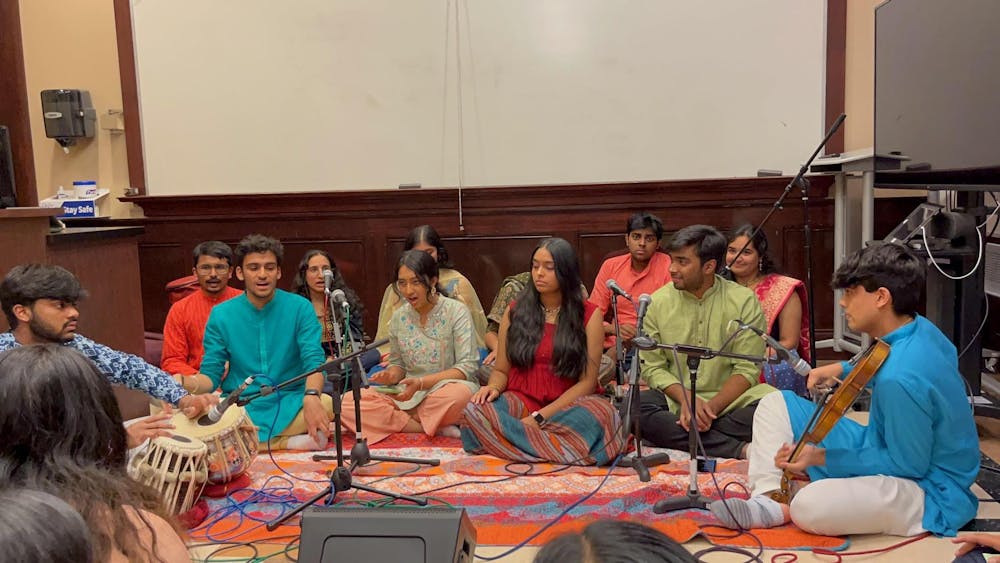Every Thursday in Greenlaw Hall, singers' voices blend with the sounds of instrumentalists playing violins, flutes and percussion instruments during the club meetings for Bharat Sangeet at UNC.
First-year student and club member Suhan Asaigoli said the meetings are a unique sensory experience.
Bharat Sangeet is the only UNC club dedicated to solely South Asian classical music. Its Instagram bio says the club welcomes all styles of Indian classical music. It was previously a joint organization between UNC and Duke University and was revived in 2023 by junior Samarth Rao, the club president and a drummer.
Rao said he wanted to restart the club to provide a space for people interested in South Asian classical music to meet others and perform.
John Caldwell, the club’s adviser and associate teaching professor in the Department of Asian and Middle Eastern Studies, said South Asian classical music originated more than 2,000 years ago in the Indian subcontinent.
“That’s why the tradition is really continuous and is one of the oldest in the world,” he said.
The tradition developed from ragas, melodies based on a particular subset of notes. The name also references a mostly improvised performance that follows a strict framework of notes.
Caldwell said there are two major traditions of South Asian classical music — Carnatic music, from Southern India, and Hindustani music, from Northern India.
Carnatic music is mostly vocal but features instruments like the violin and the veena, a stringed instrument originating from India. The Hindustani tradition also uses vocals, but it emphasizes instrumental music and uses instruments such as the sitar.



